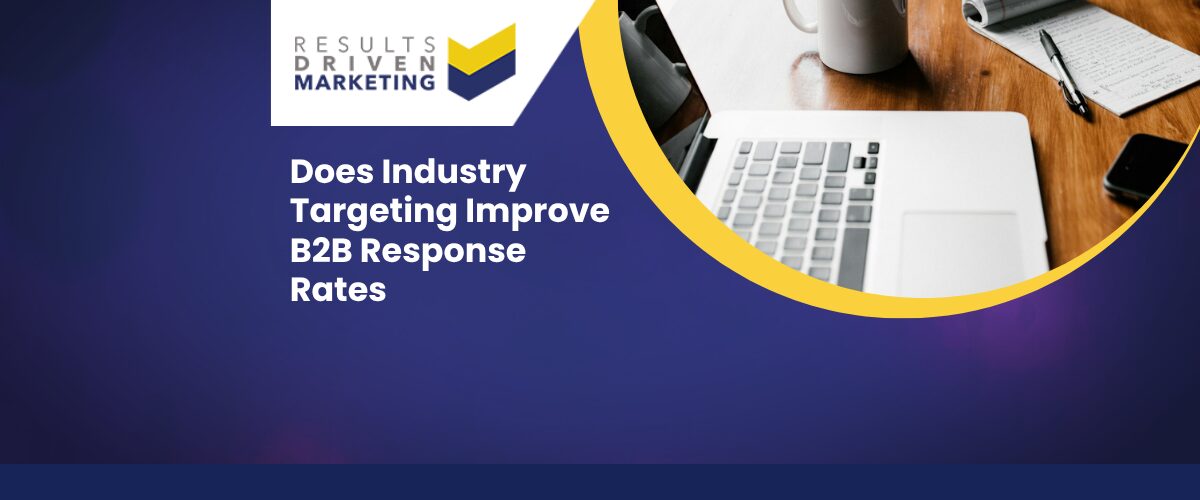
Do I Need Different Data for Different Sectors
Do I need different data for different sectors? If you’re running B2B campaigns in the UK, the answer is a clear yes—if you want results that actually convert.
Different industries mean different job roles, buying cycles, pain points, and communication preferences. A managing director in construction won’t respond the same as an IT director in fintech. Yet many SMEs rely on generic data lists that treat every sector the same—leading to low engagement, missed opportunities, and wasted marketing spend.
This guide breaks down why sector-specific data matters, how it boosts targeting and personalisation, and what to look for when sourcing B2B lists tailored by industry. Whether you’re focused on email, phone, or LinkedIn outreach, we’ll help you decide when to cast a wide net—and when narrow data drives smarter ROI.
Table of contents:
Why One-Size-Fits-All Data Doesn’t Work
Using a single, generic contact list across industries might seem efficient—but it rarely delivers the results growing UK SMEs need.
Different Sectors, Different Decision-Makers
In one sector, your ideal buyer might be the Managing Director. In another, it’s the Head of Procurement or Operations Manager. Titles and responsibilities vary widely between industries—so with a generic list, you’re often talking to the wrong person.
Messaging Misses the Mark
Each sector has its own language and pain points. A manufacturing firm cares about compliance and delivery timelines; a marketing agency focuses on leads and ROI. If your message doesn’t address those specifics, it’s likely to be ignored.
Missed Opportunities and Poor Performance
Generic data often results in lower response rates, higher bounce or unsubscribe rates, and inefficient sales conversations. That’s not just bad performance—it’s a drain on both brand credibility and budgets.
Benefits of Sector-Specific Data
If you want to connect with the right people, sector-specific data gives you the edge.
Improved Targeting & Personalisation
With data tailored by industry, you can:
-
Reference sector-specific trends and challenges
-
Craft messages that resonate by industry
-
Build instant relevance and trust—leading to more opens, replies, and deeper conversations
Better Campaign ROI
Aligned data means:
-
Higher response rates
-
Shorter time-to-conversion
-
Less wasted effort on irrelevant leads
-
Ultimately, better ROI on your outreach
Enhanced Segmentation & Prioritisation
Segment prospects by:
-
Sector
-
Company size
-
Region
-
Predicted intent and challenges
This makes campaigns smarter—not just bigger.
Compliance and Sector Regulations
Some industries like healthcare, finance, or education require added sensitivity. Choosing sector-specific data helps you remain compliant—including GDPR obligations—while staying relevant to your target audience.
When You Can Use Generic Data
While sector-specific lists are ideal, there are times when broader data still works.
Early-Stage Awareness Campaigns
If you’re promoting resources or insights with wide appeal—like general business growth strategies—a generic list can work, as long as you segment by role or company size.
Universal Products or Services
Products like HR platforms, email security tools, or energy-saving solutions can work across sectors. As long as your message is clean and targeted, generic lists can be effective.
Budget-Limited Campaigns
When testing a campaign or working with tighter funds, a general list can offer reach—but be ready to refine based on engagement and messaging relevance.
How to Choose Data by Sector
Getting sector-specific data right means following a clear process.
Define Your Sector Segments
Group your targets by:
-
SIC codes or industry categories
-
Location, turnover band, and headcount
-
High-potential verticals within broader industries
Identify Decision-Maker Roles per Industry
Titles differ by sector. A Facilities Manager in logistics may perform functions similar to a Head of Operations in tech. Focus on seniority and buying authority relevant to your offer.
Validate Data Source Accuracy
Choose providers who offer:
-
Industry segmentation filters
-
Up-to-date contacts
-
Targeting by job title, company size, and region
Clean & Format for Your CRM or Outreach Stack
Before uploading:
-
Remove duplicates
-
Ensure correct field mapping
-
Standardise sector tags and job titles
This ensures clean segmentation and accurate reporting.
Why Choose Results Driven Marketing
At Results Driven Marketing, we specialise in sector-specific B2B data that helps you build smarter campaigns.
What sets us apart:
-
2,000+ UK sectors covered—from healthcare to manufacturing—each segmented with accuracy
-
Targeted job roles by sector and seniority—ensuring you speak to the right people
-
GDPR‑compliant data, ready for email, phone, LinkedIn, or direct mail
-
Fast delivery and friendly support—data ready within 24 hours, plus expert guidance if needed
-
Flexible for multichannel outreach—lists cleanly formatted for your next campaign
If you’re ready to ditch ineffective broad lists and target with precision, we’re here to help.
Final Thoughts: Get Smarter with Sector-Specific Data
Do I need different data for different sectors? Absolutely—if you want greater engagement, cleaner campaigns, and better ROI.
While generic lists have their place, targeted data lets you speak directly to sector-specific motivations. It saves time, avoids wasted effort, and helps you build stronger relationships from first contact.
Need help building high-quality, sector-focused data? Contact us for fast, friendly support.
If you’re planning multi-channel outreach, our email lists are segmented by sector, seniority, and company size—and built to deliver results.
Results Driven Marketing
Helping UK SMEs go from bad data to more customers and profits.
Accurate, GDPR‑compliant B2B data for email, telemarketing, and LinkedIn campaigns.
📞 0191 406 6399 | Based in Newcastle, serving the UK
Website: rdmarketing.co.uk





